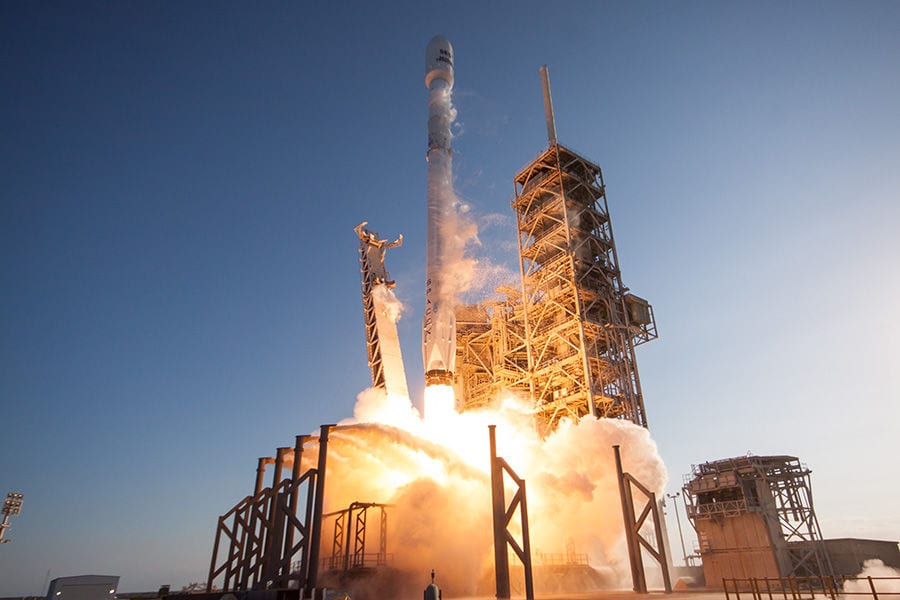
A SpaceX rocket launch. (SpaceX)
The Federal Aviation Administration (FAA) announced a new Part 450 final rule for commercial space launch and re-entry regulations. The rule contains requirements for obtaining a vehicle operator license, safety requirements, and terms and conditions of a vehicle operator license.
“As we flip the switch on our new Part 450 streamline launch and reentry requirements rule, or what we call SLR2, this performance-based rule will allow us to keep pace with this innovative industry and safely oversee the dramatic growth of the entire commercial space transportation sector,” FAA Administrator Steve Dickson said in a video announcing the rule. “With SLR2, we can make sure launch vehicles and their amazing payloads aren’t tethered to the launch pad with red tape. That’s value-added for the industry and ultimately for the American people.”
Part 450 amends 14 CFR parts 415, 417, 431, and 435, which will be removed after March 10, 2026, according to the rule. The new rule took effect on March 21 and came out of recommendations from the National Space Council.
“The result with SLR2 is a new rule that eliminates obsolete requirements, replaces most prescriptive requirements with performance-based criteria, and establishes a single set of licensing and safety regulations for several types of commercial space operations,” Dickson said. “What that means in practice is that one license can now support multiple launches and re-entries at multiple locations, a game-changing innovation, again, with less paperwork. Clearly, FAA is innovating and SLR2 will allow industry to innovate too with technological advancements that will lower the cost of launch operations and open new markets for satellites, space tourism and potentially suborbital point to point, regional, and intercontinental travel.”
The FAA cites a dramatic increase in commercial space launches as a reason for this new rule. In 2011 there was only one launch. This number increased 3,800 percent in under 10 years with 39 launches in 2020.
According to the agency’s latest reported data, in the U.S., there are presently 12 FAA-licensed spaceports, in addition to Federal government and private launch sites. There are a total of 11 individual companies with active with active launch licenses including Blue Origin, Orbital Sciences, Virgin Orbit, Rocket Lab, SpaceX and Lockheed Martin among others.
Dickson said the FAA is expecting a licensed launch or re-entry about once a week in 2021.
“Innovation in commercial space transportation is increasing dramatically, and policy needs to keep up,” U.S. Transportation Secretary Pete Buttigieg said in a statement. “This rule will help us to prepare for future U.S. leadership in commercial space transportation by facilitating the continued economic growth and innovation of the American aerospace industry and ensuring the highest level of public safety.”